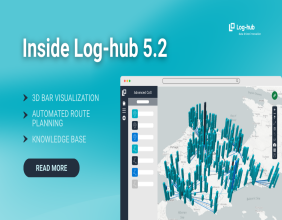Highlights
- The FTSE Futures Live Index provides real-time insights into market movements for traders.
- Major companies such as Vodafone Group (VOD) and Barclays (BCS) influence the FTSE futures trend.
- The FTSE Futures Live Index can reflect global market sentiments with movements often tied to key economic reports.
The FTSE Futures Live Index plays a critical role in reflecting the state of the financial markets, particularly for those following UK-based companies. This index provides real-time futures trading data, tracking the performance of the FTSE index ahead of the opening of the London stock exchange. By following the FTSE Futures Live Index, traders can observe immediate shifts in market sentiment based on global events and economic reports.
Key Features of the FTSE Futures Live Index
FTSE Futures are contracts traded on the London International Financial Futures Exchange (LIFFE) that track the FTSE index. This futures contract helps traders speculate on future price movements of the FTSE index, offering an early view of how the market may perform once the London Stock Exchange opens. Tracking the FTSE Futures Live Index provides a glimpse into the market’s direction, influenced by various economic factors such as interest rate changes, inflation, and geopolitical developments.
Influence of Global Markets
The FTSE Futures Live Index often reflects reactions to economic data from around the world. Market trends can shift based on the performance of global stock exchanges, including the US and European markets, as well as emerging economies. For instance, companies such as Vodafone Group (VOD) and Barclays (BCS), which are major players in the FTSE index, can have a significant impact on the futures market. Positive or negative news concerning these companies can influence the FTSE Futures, prompting traders to adjust their positions ahead of market opening.
Interpreting the Live Index Data
The real-time data of the FTSE Futures Live Index is crucial for traders looking to make informed decisions. By observing changes in the futures market, traders can assess market sentiment and gain a clearer understanding of the direction in which the market is heading. Additionally, movements in the index are often tied to global market trends, reflecting how different financial sectors are performing worldwide.
Impact of Economic Events
Economic events such as quarterly earnings reports, changes in government policies, or international trade agreements can have an immediate effect on the FTSE Futures Live Index. These events are often closely monitored as they can provide crucial signals regarding market movements. Major UK companies, including those within the banking, telecommunications, and energy sectors, are often highlighted in the futures data, driving fluctuations in the index based on their performance.
Real-time Monitoring and Strategy
For those trading based on the FTSE Futures Live Index, monitoring real-time changes is essential for executing trading strategies. Futures contracts can be a valuable tool for hedging against market volatility, providing traders with a mechanism to manage exposure to potential market changes. However, the fast-paced nature of futures markets means that decisions must be made swiftly, with traders relying on up-to-date information to inform their strategies.



